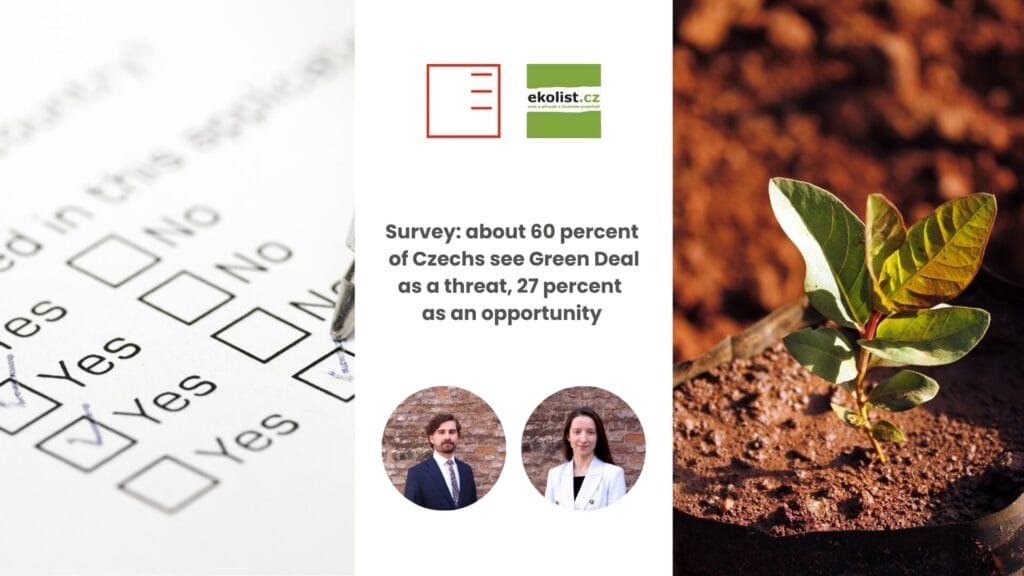
Ekolist.cz | Survey: About 60 percent of Czechs see Green Deal as a threat, 27 as an opportunity
More info 5. 3. 2025
5. 3. 2025
Almost 60 % of Czechs see the Green Deal as a threat, while 27 % see it as an opportunity. This is according to a survey conducted by STEM and the Europeum Institute for European Policy. The Green Deal has become a brand for all climate policy, on which it is relatively easy to pile a lot of different negative aspects. Rebeka Hengalová, researcher at EUROPEUM, and Viktor Daněk, deputy director of the Institute, commented for Ekolist.cz.
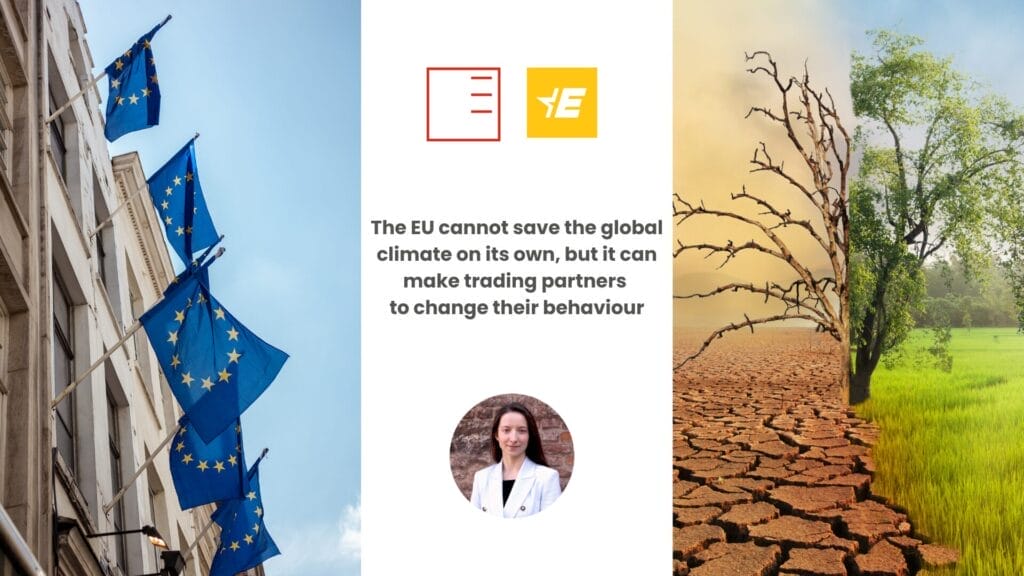
Euractiv.cz | The EU cannot save the global climate on its own, but it can make trading partners change their behaviour
More info 4. 2. 2025
4. 2. 2025
The arrival of Donald Trump as President of the United States of America sends a negative message to the global climate, yet Europe should continue its efforts. These were the conclusions reached by experts during a discussion on climate policy organised by Euractiv.cz.
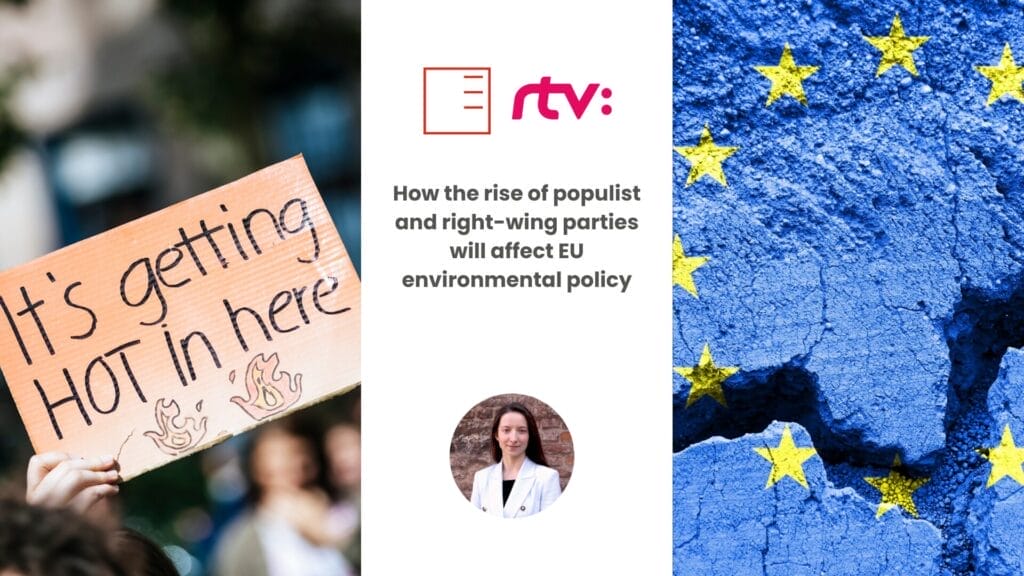
STVR | How the rise of populist and right-wing parties will affect EU environmental policy
More info 23. 1. 2025
23. 1. 2025
In recent years, we have seen a rise in the influence of populist and right-wing parties across Europe, raising questions about the future direction of EU politics. What impact might their strengthening position have on environmental priorities? Will the EU's climate targets be slowed down or will new approaches emerge? Rebeka Hengalová, a research fellow at EUROPEUM Institute, commented for Slovakian radio STVR.
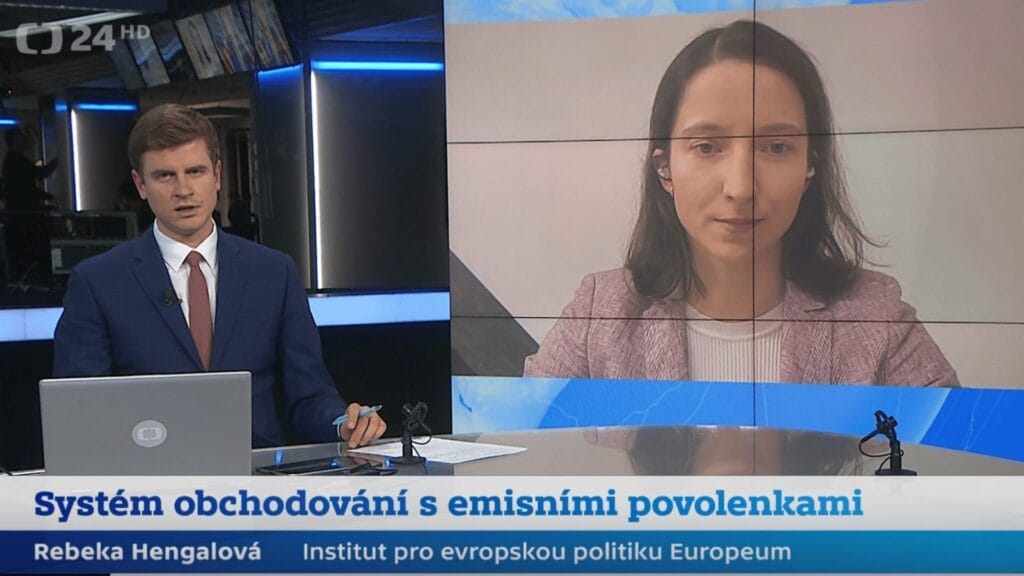
ČT24 | Government aims to postpone and modify the new emissions trading system
More info 16. 12. 2024
16. 12. 2024
Environment Minister Petr Hladík is heading to Brussels to negotiate a postponement of the proposed ETS2 directive, which introduces a new emissions trading system. The government is seeking not only to postpone the directive but also to amend it to strengthen consumer protection. EUROPEUM Institute analyst Rebeka Hengalová commented for ČT24.
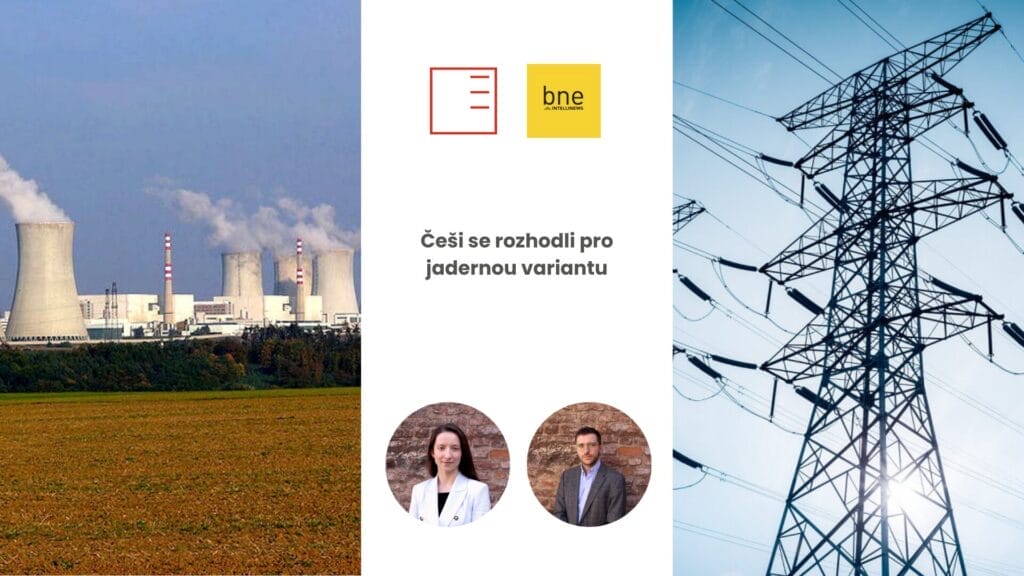
bne IntelliNews | Czechs opt for nuclear option
More info 11. 12. 2024
11. 12. 2024
Currently, the energy mix in the Czech Republic consists mainly of nuclear and coal power, with some secondary input from renewable sources. Coal-fired power plants are to be phased out by 2033 as part of the country's climate mitigation efforts, so the country will be dependent on nuclear and renewables to meet future electricity demand, which is likely to grow due to the shift to electromobility. EUROPEUM Institute researcher Rebeka Hengalová and analyst Filip Křenek commented for bne IntelliNews.
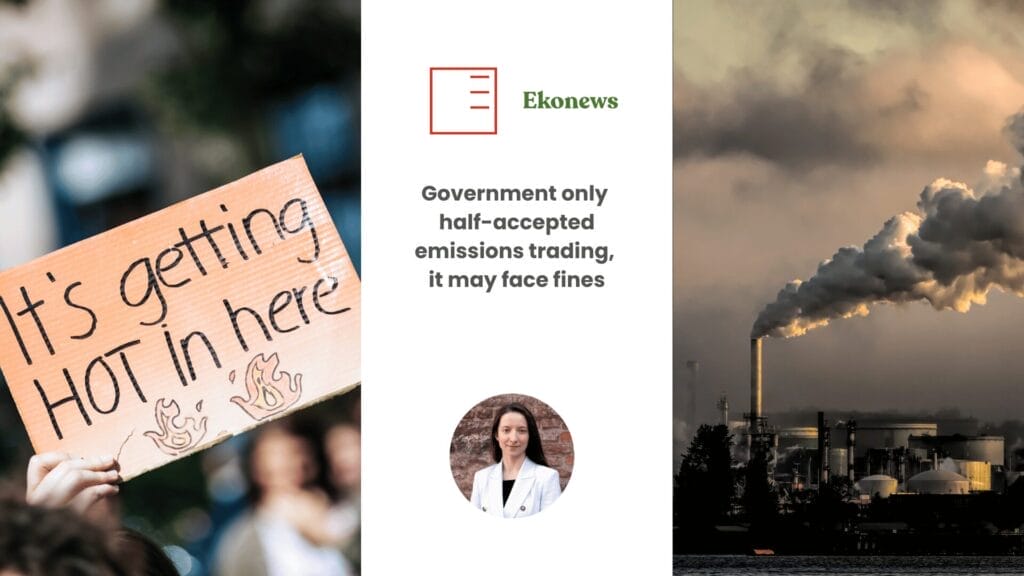
Ekonews | Government only half-accepted emissions trading, it may face fines
More info 26. 11. 2024
26. 11. 2024
The government has partially adopted rules for emissions trading based on European regulations. However, failure to adopt some key aspects could lead to problems, including possible fines from the European Union. The main issues are the sharing of profits from allowances and the protection of vulnerable groups from rising energy costs. Rebeka Hengalová, an researcher at EUROPEUM Institute, commented for Ekonews.
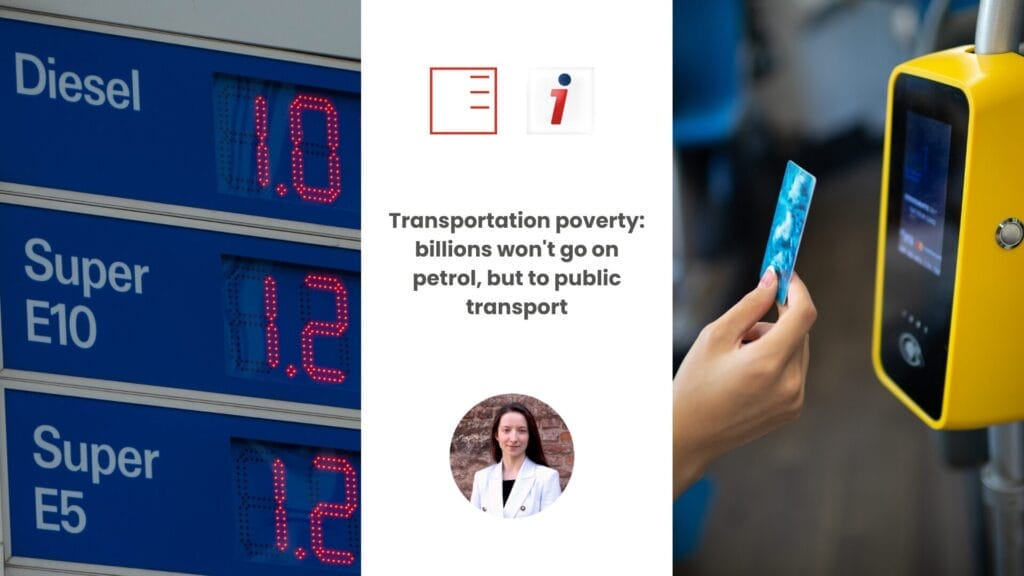
iDnes.cz | Transportation poverty: billions won't go on petrol, but to public transport
More info 21. 11. 2024
21. 11. 2024
Efforts to reduce carbon dioxide emissions also have less discussed impacts, such as transport poverty. While wealthier households invest in green technologies such as electric cars and solar panels, low-income families often do not have the means to buy new, low-emission vehicles. Rebeka Hengalová, a researcher at the EUROPEUM Institute for European Policy, commented for iDNES.cz.
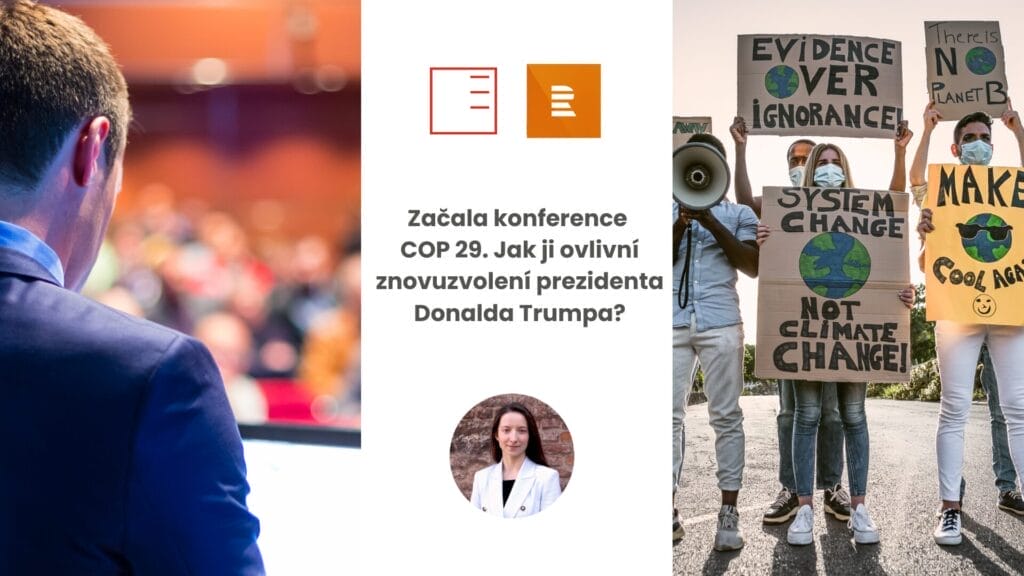
ČRo Plus | COP 29 has begun. How will President Donald Trump's re-election affect it?
More info 11. 11. 2024
11. 11. 2024
Organisers of this year's climate change conference, which starts today in Baku, Azerbaijan, under the acronym COP 29, have not shown much optimism. The stance of the world's second-largest polluter, the United States, on climate protection is uncertain after last week's presidential election. The Americans withdrew from the Paris Climate Agreement during Donald Trump's first presidency and it is expected that they could withdraw from it again during his second presidency. In addition, world leaders still can't agree on financing a green transition in developing countries, which is expected to be a major focus of this year's climate change conference. Rebeka Hengalová, researcher at EUROPEUM Institute, commented for ČRo Plus.

Ekonomický deník | Postponing the revision of the end of internal combustion engines will not be easy
More info 3. 10. 2024
3. 10. 2024
Czech Minister of Transport Martin Kupka announced at the end of September, following the example of Italy, that the revision of the end of internal combustion engines should take place earlier than in the originally planned 2026. Rebeka Hengalová, researcher at EUROPEUM Institute, commented for Ekonomický deník.
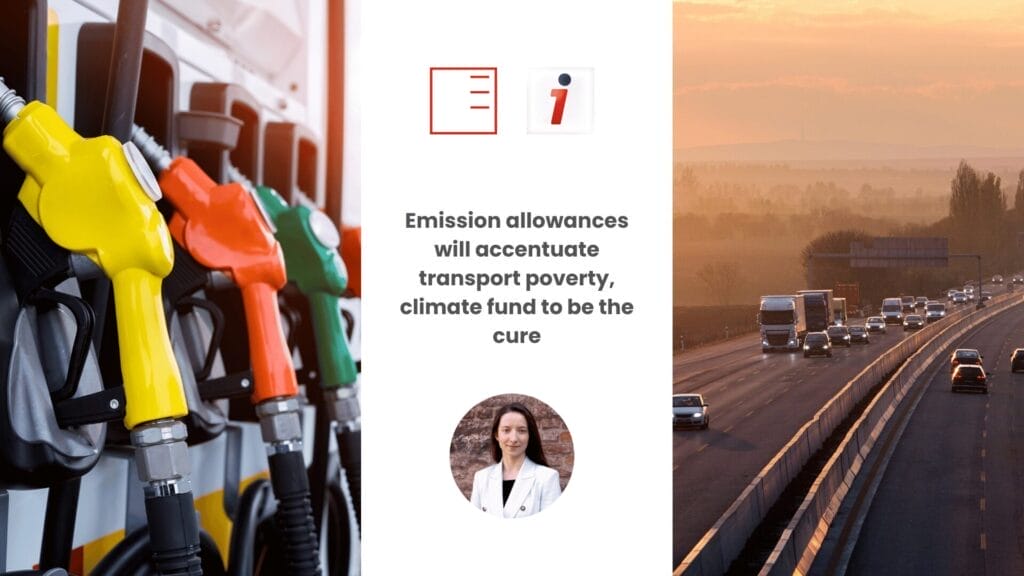
iDNES.cz | Emission allowances will accentuate transport poverty, the Social Climate Fund to be the cure
More info 7. 9. 2024
7. 9. 2024
The introduction of the new EU Emissions Trading System could significantly increase transport costs, which would affect low-income households the most. However, transport poverty is not just a question of spendings, but also of accessibility and quality of transport. Rebeka Hengalová, a researcher at the EUROPEUM Institute, commented for iDnes.cz.
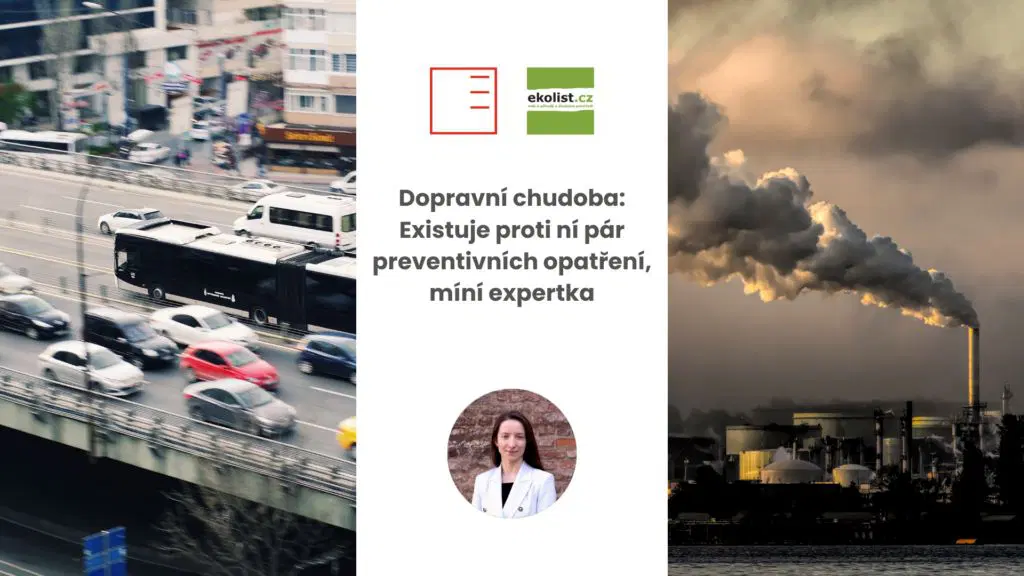
Ekolist.cz | Transport poverty: there are a few preventive measures against it, says expert
More info 2. 9. 2024
2. 9. 2024
Transport costs may become more expensive under the new emissions trading scheme, which will hit low-income households hardest. But the so-called transport poverty need not only be financial. It is also about infrastructure accessibility and physical usability. Rebeka Hengalová, researcher at EUROPEUM Institute, commented for Ekolist.cz.

Hospodářské noviny | The Czech Republic can raise billions to fight transport poverty, but the government is hesitant on key legislation
More info 2. 9. 2024
2. 9. 2024
A household is at risk of transport poverty if it either spends a large proportion of its budget on transport needs, cannot meet all its transport needs, or has no cheaper alternatives to private or public transport. According to a study by the analytical institute STEM, on average three percent of households in the Czech Republic are at risk of this situation. Rebeka Hengalová, a researcher at EUROPEUM Institute, comments for Hospodářské noviny.